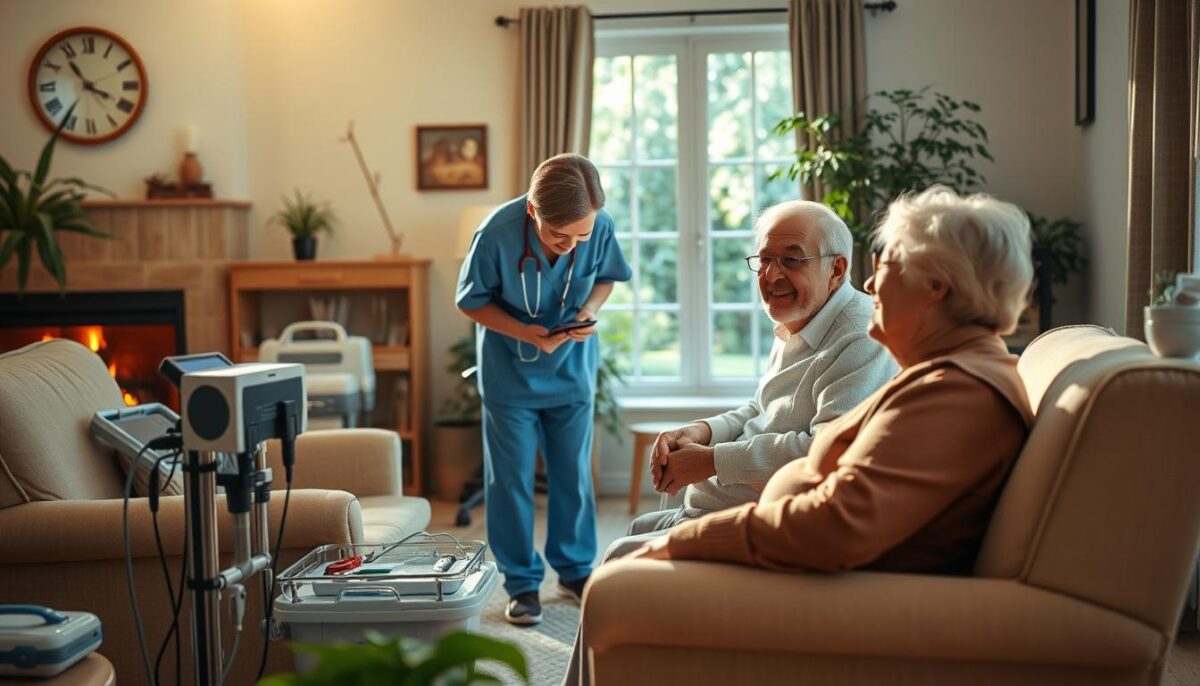
Professional Personal Care Waltham MA
May 11, 2025
Professional Home Care Berklee MA
May 12, 2025When facing advanced illness, finding compassionate support that prioritizes your well-being is essential. In Waltham, specialized programs focus on enhancing daily life through tailored solutions designed for physical, emotional, and spiritual needs. These offerings emphasize 24/7 access to expert guidance, ensuring families never feel alone during challenging times.
One standout feature is the HomeMD program, which brings medical expertise directly to those with limited mobility. This service eliminates travel stress while providing personalized attention for symptom management. Teams collaborate closely with patients and loved ones to create care plans that align with individual goals.
Community partnerships further strengthen these efforts. Local events and educational resources foster connections, helping families navigate complex decisions. With a reputation built on trust, these programs reflect years of dedication to improving outcomes for every household.
Key Takeaways
- 24/7 access ensures immediate support for symptom management and referrals
- HomeMD eliminates travel burdens with in-home medical visits
- Care plans prioritize individual preferences and comfort goals
- Community partnerships provide education and social connections
- Proven track record of trusted service in the Waltham area
For urgent needs, call 888-283-1722 to speak directly with a care coordinator. This streamlined approach allows families to focus on what matters most—quality time together.
Overview of Professional Palliative Care Services Waltham MA
Navigating serious illness requires more than medical treatment—it demands holistic support tailored to individual needs. Local programs focus on easing discomfort while addressing emotional and practical challenges. This approach helps people maintain independence while managing complex symptoms.
How Support Programs Work Together
Specialized assistance and end-of-life programs share common goals but operate differently. While both prioritize comfort, the former often begins earlier in a health journey. Teams coordinate closely with doctors to manage pain, fatigue, or breathing difficulties through personalized treatment adjustments.

Strategies for Daily Well-Being
Innovative methods like relaxation therapies or nutrition planning help improve daily experiences. Many providers, including Good Shepherd Community Care, emphasize home visits to reduce hospital trips. This allows individuals to stay in familiar surroundings while receiving expert attention.
Families play a central role in these plans. Care teams educate loved ones on medication schedules and communication techniques. Regular check-ins ensure everyone feels prepared to handle changing needs, fostering confidence during difficult times.
Professional Palliative Care services waltham ma: Comprehensive Benefits
Enhancing quality of life during serious illness involves more than symptom treatment—it requires coordinated efforts addressing physical, emotional, and practical needs. Local initiatives combine advanced medical strategies with personalized attention to help patients maintain control over daily experiences.
Expert Medical Support and Innovative Symptom Management
Teams like those at Care Dimensions use evidence-based methods to address complex health challenges. For example, 93% of patients report improved pain control within 48 hours of personalized plan implementation. Their Homemd program delivers specialised nurses and doctors directly to residences, reducing hospital visits for those with mobility limitations.
Home-Based and Community Centered Care
Receiving assistance where you live most matters creates stability during uncertain times. Weekly check-ins and medication adjustments occur in familiar settings, minimising family stress. Partnerships with local organizations also provide educational workshops and respite programs, strengthening support networks.
These approaches prioritise your preferences while adapting to changing needs. By combining clinical expertise with community resources, households gain tools to navigate challenges confidently, today and in the future.
Supporting Families and Caregivers: Additional Services and Community Programs
Caring for someone with complex health needs requires a network of resources and understanding. Local initiatives extend beyond medical care to strengthen households through education, technology, and social connections. These efforts empower you to focus on meaningful moments while managing daily responsibilities.
Integrating Family Care and Support Networks
Community-driven programs like the Dementia GUIDE Program offer tailored education for caregivers navigating memory-related challenges. Monthly workshops provide communication and stress reduction strategies, while respite options allow time for self-care. Partnerships with organizations like CareLinx connect families to vetted helpers for meal prep or transportation.

Leveraging Technology and In-Home Service Features
Digital tools streamline care coordination with secure portals for medication tracking and real-time updates. Mobile apps let you message care teams instantly, reducing delays in addressing urgent needs. In-home devices monitor vital signs, alerting professionals to changes before they escalate.
Grief support groups and virtual counseling sessions foster emotional resilience across communities. These resources adapt to your schedule, ensuring access whether you’re at home or work. By blending human expertise with tech innovation, households gain confidence in managing health journeys today and tomorrow.
Conclusion
Local initiatives bridge medical expertise with heartfelt community connections. These programs have helped households navigate health challenges for decades while preserving dignity. Compassionate care prioritises your comfort through home visits, symptom management, and round-the-clock guidance.
Integrated support networks strengthen families. Educational workshops and technology tools simplify care coordination, while respite options let caregivers recharge. Testimonials highlight how these resources reduce stress during difficult transitions.
Trusted partnerships remain central to this approach. By combining clinical knowledge with neighbourhood-driven solutions, providers ensure continuity in your care journey. Whether managing chronic conditions or seeking hospice support, you’ll find tailored plans that respect your values.




